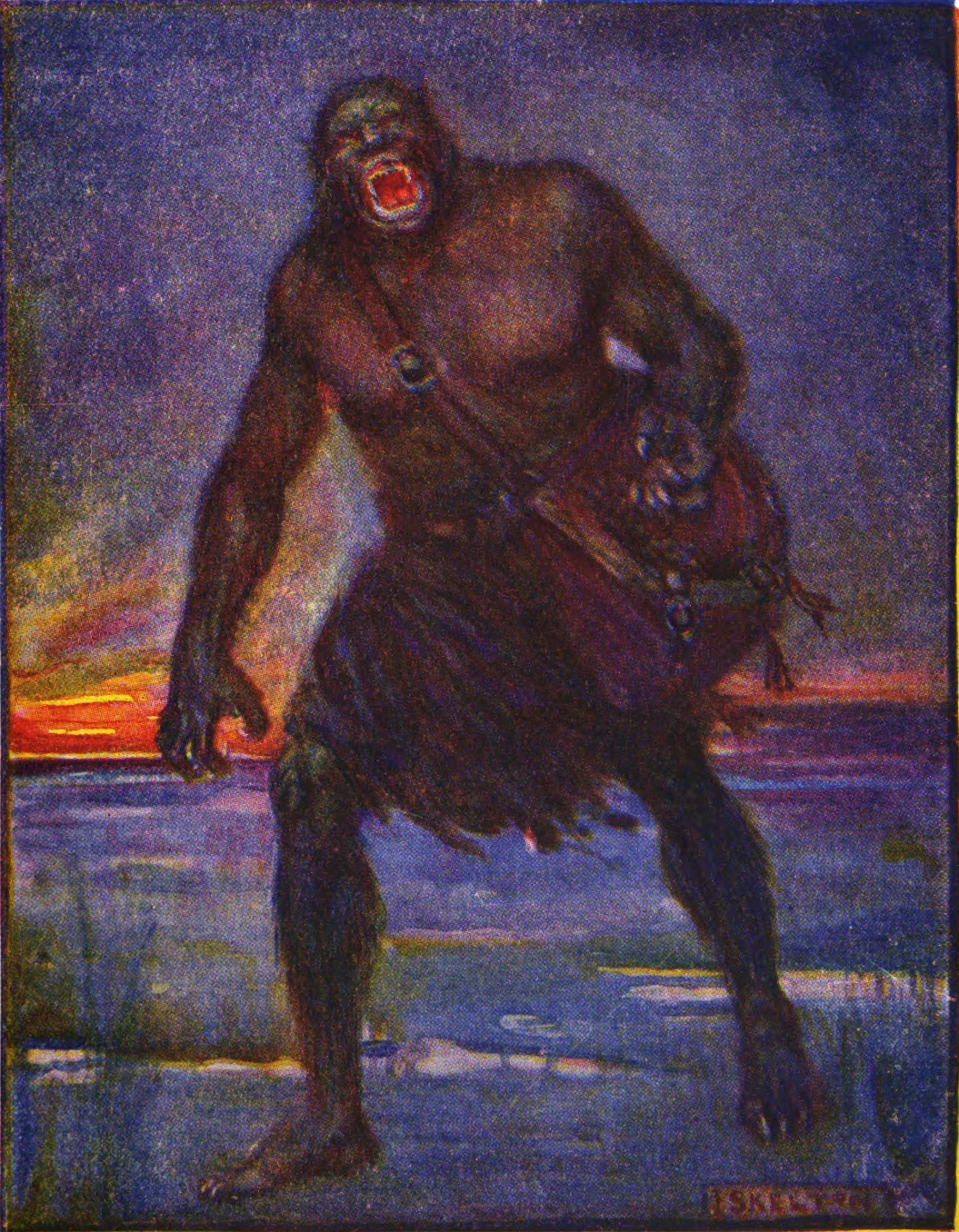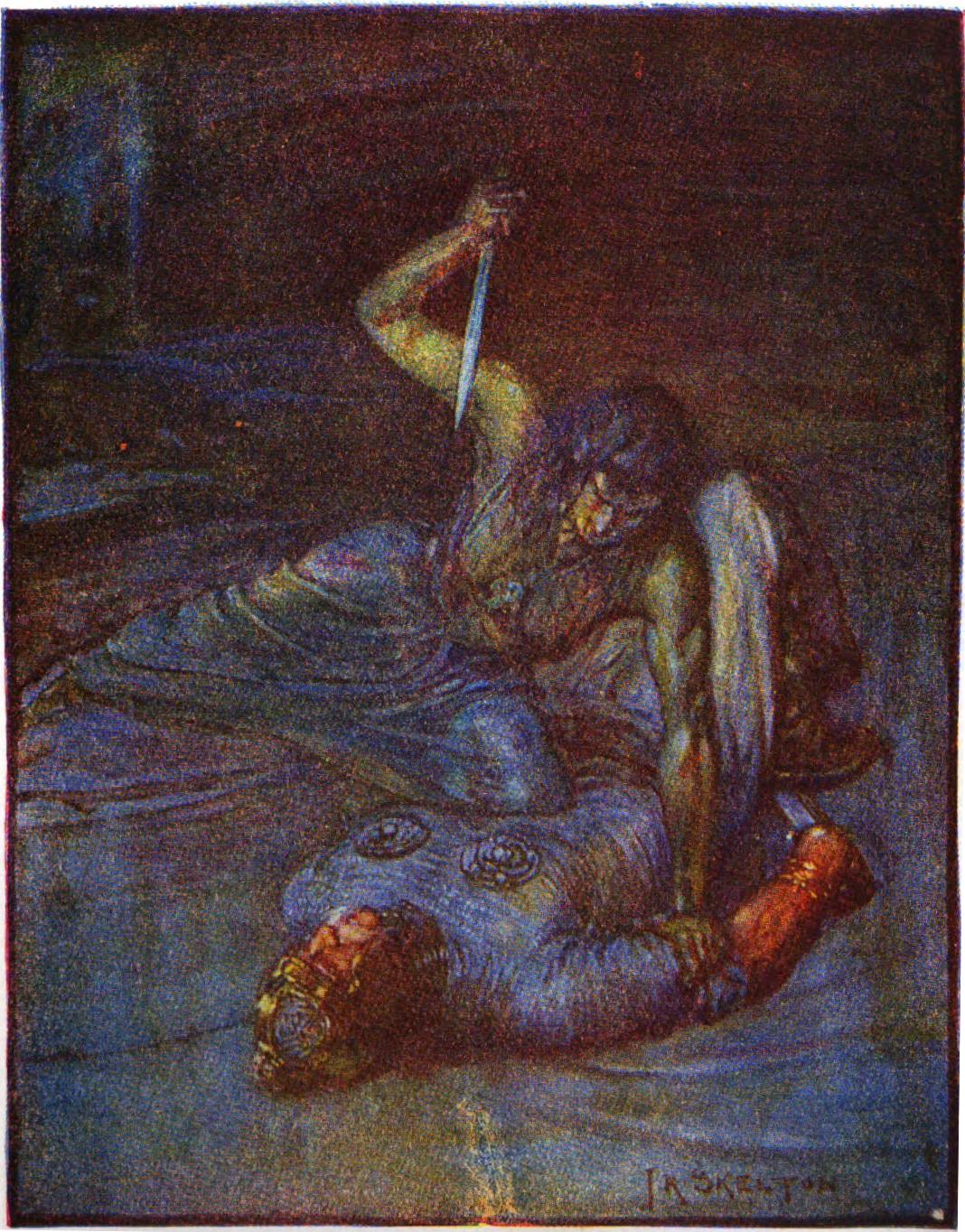By Kim Rendfeld
Grendel and his mother, the first two monsters Beowulf faces in the poem bearing his name, are both frightening and fascinating—and their creator blends pagan beliefs with a deep understanding of Christianity.
We might never know who penned the oldest English epic poem between the middle of the seventh century and end of the 10th, but it is proof that its author had a great intellect and great imagination, even though most people who lived in the Dark Ages could not read or write. (And like many medieval writers, Beowulf’s creator included a healthy dose of gore.)
Called a “demon,” “fiend out of hell,” and “shadow stalker,” Grendel shares many of traits of a draugr, an undead creature from Scandinavian mythology. He resents the living, wreaks murderous havoc, cannot be placated, and cannot be slain by ordinary weapons. Otherworldly beings were so real to an early medieval audience, the folk took precautions to appease or hinder them such as having a wake for the dead or burying a corpse with a Host—the presence of Christ—in their mouth.
However, Grendel is living enemy. Instead of a burial mound, he inhabits a fen.
Yet the poet bases his explanation for Grendel’s monstrosity on Christian beliefs by saying Grendel is a descendant of Cain. The poet might have read a letter from the Apostle John, who exhorts Christians to love one another and not be like Cain, not only because the character is murderous but because by that act, he became more like Satan than Adam.
So Grendel is not only the bane of Heorot Hall; he is an enemy of God. The poet calls him “God-cursed” and says he bears God’s wrath. The only way to stop Grendel is to kill him. Beowulf delivers the fatal blow by tearing off the monster’s arm while they wrestle. Grendel flees home. In the morning, the men get a good look at the disembodied limb, which is like “barbed steel,” and they realize none of their weapons would have worked.
Like some draugrs, Grendel has a mother, and in her grief, she is more dangerous than her son. She doesn’t have a name, which makes her even more fearsome. In one sense, the reader can sympathize with her. Sure her only child was a monster (literally), but he was still her son. And she, like the humans, will avenge her dead loved one. She claims the king's right-hand man the very night Heorot Hall celebrates Grendel’s demise.
The only way for Beowulf to stop her is to pursue her to her underwater lair and kill her with a weapon in her hoard, another element of pagan mythology. The sword is so heavy only Beowulf can wield it, and when he uses it to claim Grendel's head a trophy, the monster’s blood is so toxic it melts the weapon to the hilt. Like a good Christian warrior, Beowulf credits God for the victory when he later recounts the fight.
With these monsters and other elements, Beowulf gives modern readers a glimpse how Christian and pagan beliefs coexisted in early medieval times.
Illustrations by J.R. Skelton (public domain, via Wikimedia Commons)
Sources
“The Walking Dead: draugr and Aptrgangr in Old Norse Literature,” The Viking Answer Lady
“Beowulf’s Monsters: Comparing the Mythology of Grendel, Cain, and Satan" by Sean Hadley
Beowulf, translated by Seamus Heaney
Kim Rendfeld reread Beowulf while researching her second novel, The Ashes of Heaven’s Pillar, and she continues to be fascinated by the poem. She is also the author The Cross and the Dragon and is working on Queen of the Darkest Hour. For more about Kim and her fiction, visit kimrendfeld.com or her blog, Outtakes. You can also connect with her on Facebook and Twitter.



Been fascinated by Beowulf ever since I read J R R Tolkien's Beowulf the Monsters & the Critics over forty years ago.
ReplyDeleteFascinating analysis. I am going to have to re-read Beowulf now and pay better attention to it than I did as a high school senior over 50 years ago - lol! I'm actually looking forward to it this time. Thanks.
ReplyDelete